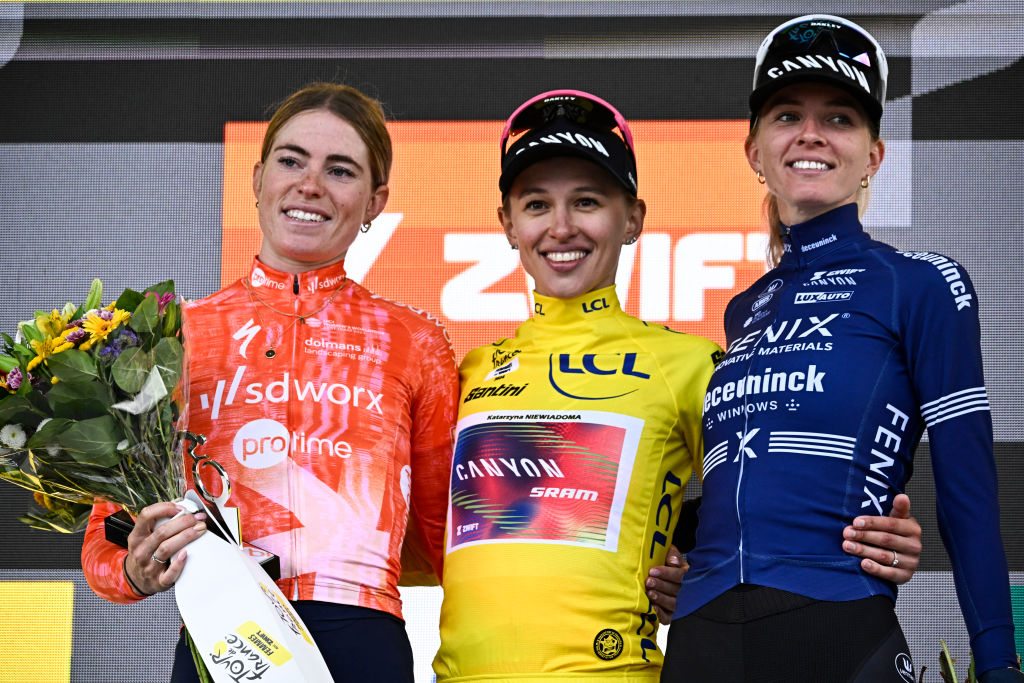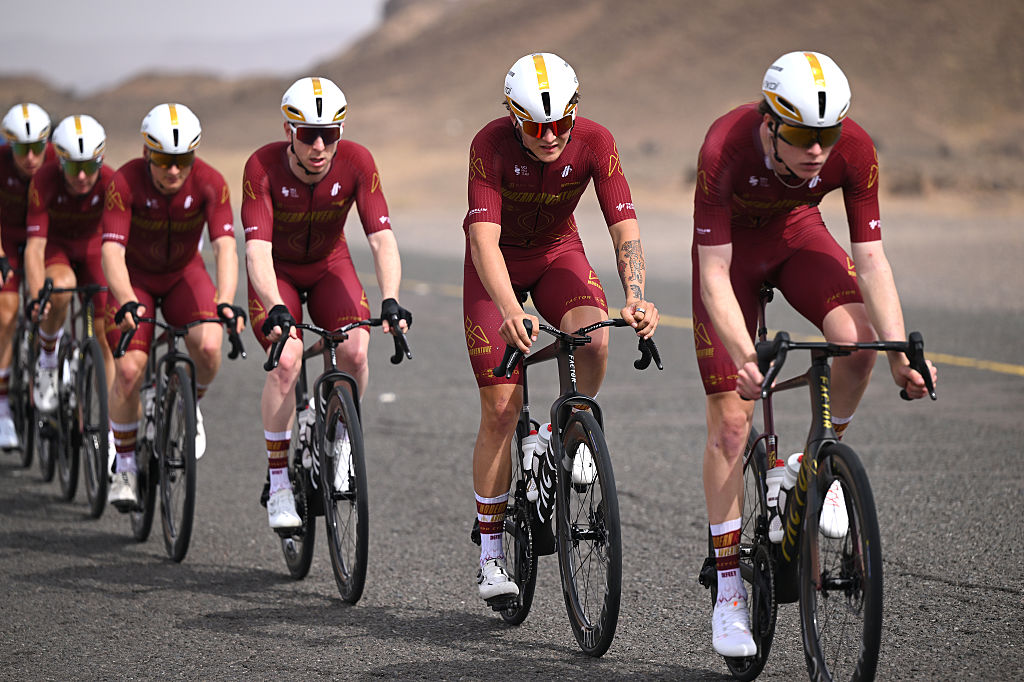UCI points update brings Women's WorldTour system in line with men's, designating women's Monuments and boosting Tour de France Femmes
Points allocations tweaked for men's and women's calendars, plus new rules on race restarts and new safety 'regulator' role

The latest race content, interviews, features, reviews and expert buying guides, direct to your inbox!
You are now subscribed
Your newsletter sign-up was successful
After last week's major announcement from the UCI on various new tech rules and the 2026 race calendars, cycling's governing body has ushered in a few more smaller amendments this week, including the minimum gearing test and tweaks to the points system and new rules on race neutralisations.
The points changes, which will come into force on October 20 this year, see some minor shuffles and changes to the points allocation for men's races, and a major overhaul of the system for women's races to bring in parity with the men's system.
Previously, the UCI points allocations for women's racing were only divided into WorldTour, ProSeries, Class 1 and Class 2, meaning all races of one level offered the same points, rather than different designations for different races, as is the case in the men's sport.
The lack of differentiation meant that, for example, you would score the same number of points (400) for winning the one-day Tour of Guangxi as you would for winning the final GC of the Tour de France Femmes.
Under the new system, there are now five tiers of Women's WorldTour events. At the lowest end, 12 events will continue to offer 400 points for the winner, with 500 points on offer for the next batch of nine events, a mixture of Classics and 'bigger' stage races.
Then, there is what appears to be a designation of women's Monuments, the first time four women's Classics have officially had a higher value. They are now Milan-San Remo, the Tour of Flanders, Paris-Roubaix and Liège-Bastogne-Liège, the same as the men's, only missing Il Lombardia, which doesn't have a women's event. For these, the winner earns 800 UCI points.
The second tier contains the Giro d'Italia Women and Vuelta Femenina, offering 1100 points to the winner, and then the biggest women's event, the Tour de France Femmes, tops the pyramid on its own, with 1300 points available for the winner – more than triple what Kasia Niewiadoma-Phinney would have scored last year.
The latest race content, interviews, features, reviews and expert buying guides, direct to your inbox!
There are also now more points on offer for things like wearing the leader's jersey in a stage race and winning a secondary classification in a Grand Tour.
This system is almost exactly the same as the men's WorldTour allocation, with the men's and women's versions of each event being worth the same amount of points.
On the men's side, the system has changed from six tiers to five – removing the lowest level, with 300 points on offer for the winner – meaning several races have moved tier. The UAE Tour has been bumped up from the lowest level to the 500-point tier, whilst La Flèche Wallonne and Strade Bianche have been moved from the 400-point tier to the 500.
All other races from the previous lowest tier are still in the new lowest tier, but will offer 100 extra points to the winner.
Despite debate, Strade Bianche is still firmly not a Monument, but is now at the same level as races like Gent-Wevelgem and Amstel Gold Race, which it previously wasn't.
At ProSeries level, a win will now be worth 250, up from 200, but the gap from ProSeries win to the lowest-level WorldTour win is now wider (150 points difference rather than 100) which should add more value to WorldTour racing over ProSeries events, which has been a point of contention in the battle for relegation and promotion.
Women's ProSeries events have had the same bump in points up to 250, keeping the two systems in line. The points available for the women at Olympic Games and World Championships have also been bumped up to 900 for elite road races and 455 for time trials, the same as the men's. The amendments have also extended the points-scoring placings in national championships and continental championships to be the same as the men's.
Changes to safety and race neutralisations
As well as the sweeping changes to the points system, the other important changes concern safety and race neutralisations.
Coming into force as soon as July 1, the UCI have codified a protocol around restarts for races that are interrupted due to weather or safety, such as stage 6 of the Giro d'Italia or stage 4 of Paris-Nice this year.
The key point is that there will now be a maximum stoppage time, meaning the race must be restarted no later than 15 minutes after the initial halt, and the restart time must be clearly communicated via race radio.
Most of the other protocols remain as expected – riders may receive warm clothing and food during the stoppage, and return to team cars, plus race gaps of over 30 seconds must be maintained – but the new rule formalises all of this.
As of January 1, 2026, the UCI will also introduce a new role called a 'regulator' who is responsible for overseeing rider safety during events, and will be a person who has "significant experience in cycling events, ideally as a former rider or with equivalent expertise". They will follow the race on a motorbike as a passenger.
For men's and women's WorldTour events, two regulators will be required, whilst ProSeries and Class 1 events will have to have one, and for other events it is "strongly recommended".
These new safety regulations are in conjunction with a test of maximum gearing that the UCI plans to implement later this year.
The full race rules, amendments and memoranda, including a full breakdown of the points allocations, can be viewed on the UCI website.
Matilda is an NCTJ-qualified journalist based in the UK who joined Cyclingnews in March 2025. Prior to that, she worked as the Racing News Editor at GCN, and extensively as a freelancer contributing to Cyclingnews, Cycling Weekly, Velo, Rouleur, Escape Collective, Red Bull and more. She has reported from many of the biggest events on the calendar, including the Giro d'Italia, Tour de France Femmes, Tour of Flanders and Paris-Roubaix. She has particular experience and expertise in women's cycling, and women's sport in general. She is a graduate of modern languages and sports journalism.
You must confirm your public display name before commenting
Please logout and then login again, you will then be prompted to enter your display name.
